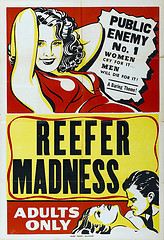
According to well-worn stereotypes, boys who have sex are “players” or “studs,” while girls who have sex get stuck with nastier labels. But in a recent New York Times editorial, sociologist Amy T. Schalet argues that boys in the U.S. seem to care much more about romance—and avoiding pregnancy and disease—than they did 20 years ago.
Rates for 15-to-17-year-olds who report having sex have dropped since the 1980s, according to the Centers for Disease Control. “And there are virtually no gender differences in the timing of sexual initiation,” Schalet writes.
She offers a few rationales for the change, based on survey data and her own research:
Fear seems to have played a role. In interviewing 10th graders for my book on teenage sexuality in the United States and the Netherlands, I found that American boys often said sex could end their life as they knew it. After a condom broke, one worried: “I could be screwed for the rest of my life.” Another boy said he did not want to have sex yet for fear of becoming a father before his time.
In fact, Schalet writes, boys seems to be more preoccupied with negative outcomes than girls. She suggests these fears grow out of sex education and an awareness of AIDS, while the drive to have sex with another person might be, in part, quelled by access to Internet pornography.
Schalet suggests there could also be a positive reason American boys are hurrying less to have sex. It might be “because they have gained cultural leeway to choose a first time that feels emotionally right. If so, their liberation from rigid masculinity norms should be seen as a victory for the very feminist movement that Rush Limbaugh recently decried.”


